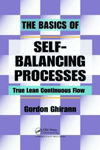
My wife and I recently purchased an ice bucket for a backyard barbecue. Although no assembly was required and it had only one part-the bucket itself-it came with a 10-page instruction booklet! (Besides the cover, the booklet had three pages in English, three in French, and three in Spanish.) Here’s the opening line: “Please read and understand this entire manual before attempting to operate the product.”
Throwing caution to the wind, we operated the bucket without reading the manual, and I’m pleased to report that no one was hurt. According to the booklet, however, injury was a distinct possibility. Among other warnings, it cautions consumers to “wear protective gloves” when handling the bucket, since “some parts may contain sharp edges.” While I appreciate the heads-up, shouldn’t the manufacturer just ensure that no bucket leaves its shop with sharp edges?
Of course, the company doubtless does just that. Like every other manufacturer these days, it was simply hoping to cover its tail and avert a potential lawsuit, no matter how unlikely.
Sadly, lawsuit abuse remains a serious problem. The U.S. legal system is more than twice as expensive as our major competitors, such as Japan, Canada and the United Kingdom. Tort claims and related litigation cost U.S. businesses more than $254 billion per year. These costs result in lost jobs and lost growth opportunities.
Small businesses shoulder a tremendous burden of the nation’s tort liability costs, having paid $105.4 billion in 2008, according to the U.S. Chamber Institute for Legal Reform. That’s particularly tragic, given that small businesses have created 64 percent of all new jobs in the United States over the past 15 years.
Thankfully, our political leaders are finally addressing the problem. During the past year, state legislatures enacted 32 tort reform measures, prompting the American Tort Reform Association to pronounce 2011 as the “most productive year for enactment of meaningful state civil justice reforms.”
One state leading the way is Texas, whose civil liability system was once ranked 43rd in the nation for fairness and reasonableness. In May, Gov. Rick Perry signed into law a comprehensive tort reform measure that includes a “loser pays” provision. Under the law, some plaintiffs who sue and lose will be required to pay the court costs and attorney fees of those they are suing. The law also creates expedited civil actions for cases less than $100,000, and it allows judges to dismiss meritless lawsuits early in the process.
Perry believes the law will make Texas more attractive to employers looking to expand or relocate, and he may be right. It is, perhaps, no coincidence that five of the top 10 states for job growth are also among the top 10 in terms of legal climate.
We urge Congress and state legislatures nationwide to enact meaningful tort reform measures. It’s time to put frivolous lawsuits on ice.




